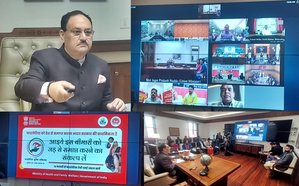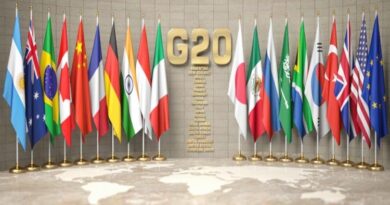JGU VC calls for new university visa for all G20 nations to promote global mobility in higher education
Sonipat, Dec 14 : Professor (Dr.) C. Raj Kumar, the Founding Vice Chancellor of O.P. Jindal Global University, has called for a major reform initiative for liberalising the visa regime pertaining to students and faculty among all countries in G20.
This proposal will help universities across the countries who are part of G20 to promote and build international collaborations in a more effective manner. This proposal recognises the fact that complex bureaucratic procedures and inordinate delays in visa approvals have created significant bottlenecks for universities in G20 countries to collaborate with each other.
This has also affected in recent times the possibility of student and faculty mobility, both of which can be addressed if a new and unique visa category called U-Visa (University Visa) is created for all countries who are members of the G20.
The proposed U-Visa will enable a comprehensive and universally recognisable visa framework for universities in the G20 countries to collaborate with each other in a more efficient manner.
India has assumed the Presidency of G20 starting December 1, 2022. It is a fantastic opportunity for India to play a leadership role in promoting transformative ideas for making this institution more relevant and impactful.
G20 is an intergovernmental forum which has 20 countries and the European Union as its members. Its main objective is to address issues relating to the global economy, especially on matters relating to international financial stability, climate mitigation and sustainable development. However, what needs to be recognized is that G20 comprises of the world’s largest economies — both industrialised and developing countries. Remarkably, G20 accounts for around 80 per cent of the gross world product (GWP), 75 per cent of the international trade, two-thirds of the global population, and 60 per cent of the world’s land area.
It needs to be recognized that collaborations across universities will help fulfil many other objectives of G20. Along with this proposal, the G20 forum should enable the opportunity of another summit hosted in parallel to the G20 summit, which will bring together the leading universities of the G20. The vision of such a proposal is to transcend the functioning of G20 that is currently limited to the governmental organisations, politicians, and diplomats.
The democratisation of the functioning of G20 as an international forum will require a complete reimagination involving other actors, especially the young people who are part of the universities of the world.
Their involvement and the participation of universities including their researchers, albeit in a separate forum hosted on the sidelines of the G20 Summit will send a powerful signal to make the working of G20 more inclusive and indeed participative.



